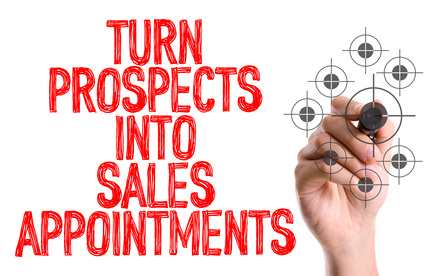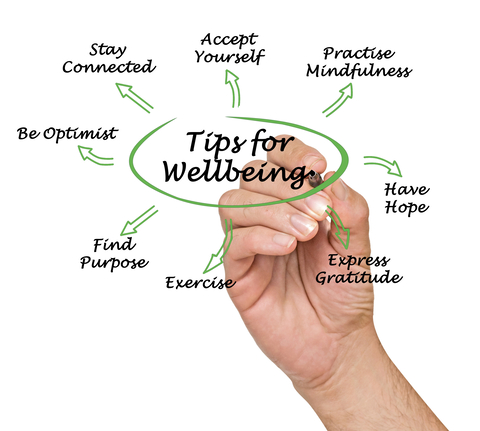20 REALTOR© Personal Development Goals For 2022

- Develop A Growth Mindset
Before you can begin the work that’s necessary to change, you have to believe that change is possible. That’s why it’s so vital to nurture a growth mindset first and foremost. Only then will you accept your potential and be willing to realize it.
- Be Proactive
You could wait for change to come to you, or you could go out there and make it happen. It’s important to remember that you can create opportunities for yourself AND take full advantage of the opportunities that present themselves.
- Know Yourself
One-size-fits-all does not work for personal development. You have to know yourself, your traits, and your personality, and adapt your approach to best suit the type of person you are. Think along the lines of your Enneagram or Myers-Briggs type, only more refined.
- Never Give Up
If you can master patience and perseverance, you can master anything. Change is not always easy; if it were, you’d have done it already. It requires a steely determination to not quit when the going gets tough. This is one of the key foundations onto which all goals are built.
- Accept Your Flaws
I know, I know, we just spoke about never giving up. And, yes, you can always try to better yourself in any way, shape, or form you see fit. But given that change is a lifelong process, you also have to accept that you are not perfect and never will be. Think of yourself as a work in progress.
- Make Better Decisions
You make hundreds of choices each and every day: which sweater to wear, what to put in your sandwich, which playlist to listen to. It’s the big decisions, however, that really matter. Get those right and your life can change in all sorts of positive ways.
- Practice Gratitude Daily
You will not appreciate anything until you can appreciate everything. Ok, that’s a nice sound bite, but realistically speaking, this doesn’t have to include the really bad stuff (we’re not trying to diminish serious trauma here). It should, however, include all the little things you probably overlook on a daily basis, but that make life so worthwhile.
- Be Open-minded
There are many opinions and many perspectives in this world; yours will be different to those held by others. Seek to remain open to the possibility that what you believe to be true isn’t necessarily the case. Most things are subjective and to think otherwise is a barrier to growth.
- Commit To Lifelong Learning
We learn things each and every day; life is always providing lessons. But you can also commit to a life of serious, meaningful learning in order to challenge yourself, grow your mind and perspectives, and promote good mental health and brain health.
- Live Authentically
What’s the point of living life as someone you’re not? Why hide your true self behind some facade? Instead, strive to be genuine, honest, and authentic in everything you do. You’ll find life is much easier and more enjoyable when you are comfortable in your own skin.
- Believe In Yourself
Have a little faith in yourself and in your ability to endure and overcome any hardship or face any challenge. When you have true self-belief, you can approach life with confidence and resolve, and this will bring you a great deal of peace.
- Overcome Your Anxiety
Dovetailing nicely with self-belief is the goal of diffusing any anxious thoughts and feelings you might have. This won’t happen overnight, but it is possible to work on your anxiety and reduce its impact on your life over a period of time. All it takes is the right tools and continued effort and perseverance.
- Learn To Cope With Stress
Life will send stressful events your way; that’s inevitable. But you have some say in how you respond to these events. If you can approach any trial or tribulation with a calmness and assurance, you will find them easier to bear and quicker to resolve. Finding ways to deal with your stress is a must.
- Be A Better Friend
The people you share your life with will have a huge influence on your enjoyment of it. Likewise, you will have a huge impact on the lives of others. By being a good friend to those you care about – and this includes your family too – you can be a source of joy and a pillar of support.
- Ditch Drama
Filling your life with drama might seem like a good way to feel alive, avoid boredom, and express yourself, but you are only being held hostage by your ego. A life free from drama is less stressful, more joyful, and better for your mental health.
- Nurture Optimism
Whether you see the glass as half full or half empty can influence your life in countless ways. A more optimistic mindset is linked to better general health and can make you more receptive to positive outcomes. Just be sure not to let a hopeful outlook stray into the realms of misguided, delusional optimism.
- Find A Healthy Work-Life Balance
We spend huge chunks of our lives working, yet many people have an unhealthy relationship with their work. You should strive to find a balance between your work and the rest of your life. Always keep this in mind: work to live, don’t live to work.
- Be More Mindful Of The Present Moment
Speaking of work, it’s important that you stop thinking about it when you are away from it. Push it out of your consciousness along with any other troubles that you can’t act on. Be present in whatever you ARE doing; be mindful of the people you are with and the places you go. This will bring you true peace of mind.
- Shake Bad Habits
Our habits play such a large role in our lives, and if you can break those that might be detrimental to your well-being, you can shift your life in a more positive direction. Whether that’s quitting smoking, checking your phone less often, or not picking at your skin, conquer your bad habits and watch what happens.
- Form Good Habits
While breaking your bad habits, you can form new, healthier habits to take their place. Habits that improve your physical and mental well-being; habits that simplify your life; habits that improve your relationships. Just remember that habits take time to form, so, as stated in goal #4, don’t give up on them.
Now take a moment now to really think about your personal development goals and which of those above are most important to you. Or, if you have other goals in mind, flip me an email to help other readers gain clarity on the path they’d like to take.
Strength and courage,
Wade















 Wanted to change things up and get a little more personal. We’ve been challenged physically, mentally, emotionally, existentially and fiscally, To put it lightly, 2020 has not left one corner of our lives unscathed, and every step of the way, we’ve felt the pressure. Pressure to get up in the morning with a smile on our face. Pressure to resume normal duties at our jobs and with our families. Pressure to remain optimistic even though our normal hobbies and favorite people are no longer available to us. How are we supposed to cope with all of this stress, knowing that most of our typical go-tos are off limits? My personal therapist Christine and I have been really
Wanted to change things up and get a little more personal. We’ve been challenged physically, mentally, emotionally, existentially and fiscally, To put it lightly, 2020 has not left one corner of our lives unscathed, and every step of the way, we’ve felt the pressure. Pressure to get up in the morning with a smile on our face. Pressure to resume normal duties at our jobs and with our families. Pressure to remain optimistic even though our normal hobbies and favorite people are no longer available to us. How are we supposed to cope with all of this stress, knowing that most of our typical go-tos are off limits? My personal therapist Christine and I have been really 